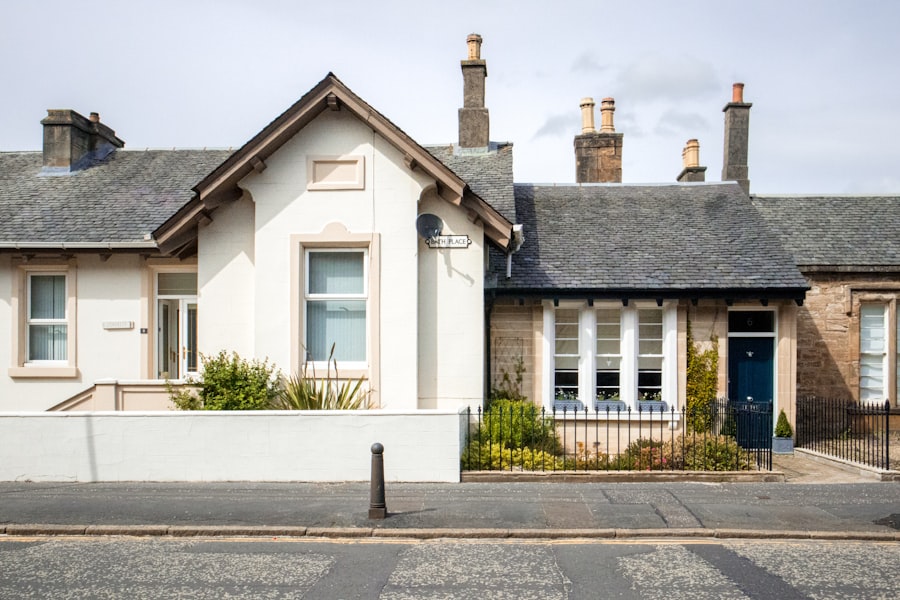The pricing of mobile homes is influenced by a myriad of factors that can significantly alter their market value. One of the primary determinants is the age of the mobile home. Newer models typically command higher prices due to modern construction standards, energy efficiency, and updated amenities.
Conversely, older mobile homes may be less expensive but could require substantial renovations or repairs, which can deter potential buyers. The condition of the home plays a crucial role as well; a well-maintained mobile home with minimal wear and tear will generally fetch a better price than one that has been neglected. Another critical factor is the size and layout of the mobile home.
Larger homes with multiple bedrooms and bathrooms are often more desirable, especially for families, and thus can be priced higher. The floor plan’s functionality also matters; open-concept designs tend to be more appealing in today’s market. Additionally, the materials used in construction can impact pricing.
Homes built with high-quality materials or those that feature energy-efficient appliances and systems are likely to be valued more highly than those constructed with lower-grade materials.
Key Takeaways
- Mobile home prices are influenced by factors like size, age, condition, and location.
- New mobile homes typically cost more than used ones, with prices varying based on features and quality.
- Additional expenses such as installation, taxes, and insurance should be factored into the total cost.
- Location significantly impacts mobile home prices, with urban areas generally commanding higher prices.
- Financing options and negotiation strategies can help buyers secure better deals on mobile homes.
Average Cost of New Mobile Homes
The average cost of new mobile homes varies widely based on several factors, including size, design, and location. As of 2023, the price range for new mobile homes typically falls between $50,000 and $100,000, with larger models or those with premium features reaching upwards of $150,000 or more. For instance, a single-section mobile home may start at around $50,000, while a double-section model can easily exceed $100,000 due to its increased square footage and additional amenities.
Moreover, the cost can also be influenced by the manufacturer and the specific features included in the home. Many manufacturers offer customizable options that allow buyers to select finishes, layouts, and additional features such as porches or upgraded kitchen appliances. These customizations can significantly increase the overall price.
Additionally, regional differences in labor and material costs can lead to variations in pricing across different states or areas within a state.
Average Cost of Used Mobile Homes

When it comes to used mobile homes, prices can fluctuate dramatically based on age, condition, and location. On average, used mobile homes can range from as low as $10,000 for older models in need of repairs to around $70,000 for well-maintained homes that are only a few years old. The condition of the home is paramount; a used mobile home that has been meticulously cared for will typically command a higher price than one that shows signs of significant wear or requires extensive repairs.
The market for used mobile homes is also affected by supply and demand dynamics. In areas where mobile homes are in high demand but low supply, prices can rise sharply. Conversely, in regions where there are many available options, buyers may find better deals as sellers compete for attention.
Additionally, factors such as the home’s location within a park or community can influence its value; homes situated in desirable areas with good amenities may be priced higher than those in less favorable locations.
Additional Costs to Consider
| Cost Type | Description | Estimated Range | Frequency |
|---|---|---|---|
| Shipping Fees | Costs for transporting goods from supplier to warehouse or customer | 50 – 500 | Per shipment |
| Customs Duties | Taxes imposed on imported goods by government | 5% – 20% of product value | Per import |
| Packaging Costs | Materials and labor for product packaging | 0.10 – 2.00 | Per unit |
| Storage Fees | Costs for warehousing inventory | 100 – 1000 | Monthly |
| Insurance | Coverage for goods in transit or storage | 0.5% – 2% of product value | Annually |
| Returns Processing | Handling and restocking returned items | 1 – 10 | Per return |
| Payment Processing Fees | Charges for credit card or online payment transactions | 1.5% – 3.5% of transaction | Per transaction |
Purchasing a mobile home involves more than just the initial purchase price; prospective buyers should also consider various additional costs that can significantly impact their overall budget. One of the most significant expenses is transportation and setup fees. If the mobile home is being moved from one location to another, costs associated with transportation can vary based on distance and local regulations.
Setup costs may include foundation work, utility connections, and any necessary permits. Insurance is another critical expense that should not be overlooked. Mobile homes often require specialized insurance policies that can differ from standard homeowners’ insurance.
The cost of insurance will depend on factors such as the home’s value, location, and age. Additionally, ongoing maintenance costs should be factored into the budget; like any property, mobile homes require regular upkeep to maintain their value and livability. This includes routine maintenance tasks such as roof inspections, plumbing repairs, and HVAC servicing.
Location’s Impact on Mobile Home Prices
The location of a mobile home plays a pivotal role in determining its market value. Urban areas typically see higher prices due to increased demand for housing and limited space for new developments. In contrast, rural areas may offer lower prices but could lack access to essential services and amenities such as schools, healthcare facilities, and shopping centers.
The desirability of a location is often influenced by factors such as proximity to employment opportunities, recreational activities, and community resources. Furthermore, local zoning laws and regulations can impact mobile home prices significantly. In some regions, there may be restrictions on where mobile homes can be placed or specific requirements for land ownership versus renting space in a mobile home park.
Areas with favorable zoning laws that allow for mobile home placement may see higher demand and subsequently higher prices. Conversely, regions with stringent regulations may deter potential buyers, leading to lower prices.
Financing Options for Mobile Homes

Financing a mobile home can differ significantly from traditional home financing due to the unique nature of these properties. Many buyers opt for personal loans or chattel loans specifically designed for mobile homes rather than conventional mortgages. Chattel loans are secured by the mobile home itself rather than land ownership, making them a popular choice for those purchasing homes in parks or on leased land.
Additionally, some lenders offer FHA loans for manufactured homes that meet specific criteria. These loans can provide favorable terms for buyers who qualify but often require the home to be affixed to a permanent foundation and meet certain safety standards. It’s essential for prospective buyers to shop around for financing options and understand the terms associated with each type of loan to ensure they select the best option for their financial situation.
Tips for Negotiating Mobile Home Prices
Negotiating the price of a mobile home requires a strategic approach to ensure that buyers secure the best possible deal. One effective strategy is to conduct thorough research on comparable sales in the area to establish a baseline for what similar homes are selling for. This information empowers buyers during negotiations by providing concrete data to support their offers.
Another important tip is to assess the condition of the mobile home critically. Identifying any necessary repairs or maintenance issues can provide leverage during negotiations; buyers can use these findings to justify lower offers based on anticipated costs for repairs. Additionally, being flexible with closing dates or other terms can make an offer more appealing to sellers who may be motivated by factors beyond just price.
Resources for Researching Mobile Home Prices
When it comes to researching mobile home prices, several resources are available to assist potential buyers in making informed decisions. Online platforms such as Zillow and Realtor.com provide listings of both new and used mobile homes along with pricing information and market trends. These websites often include filters that allow users to narrow down searches based on specific criteria such as location, size, and price range.
Local real estate agents who specialize in manufactured housing can also be invaluable resources. They possess in-depth knowledge of the local market and can provide insights into pricing trends and neighborhood dynamics that may not be readily available online. Additionally, visiting local mobile home parks or communities can offer firsthand experience regarding available options and pricing structures within specific areas.
Engaging with community members or park managers can yield valuable information about market conditions and potential deals that may not be publicly listed.



